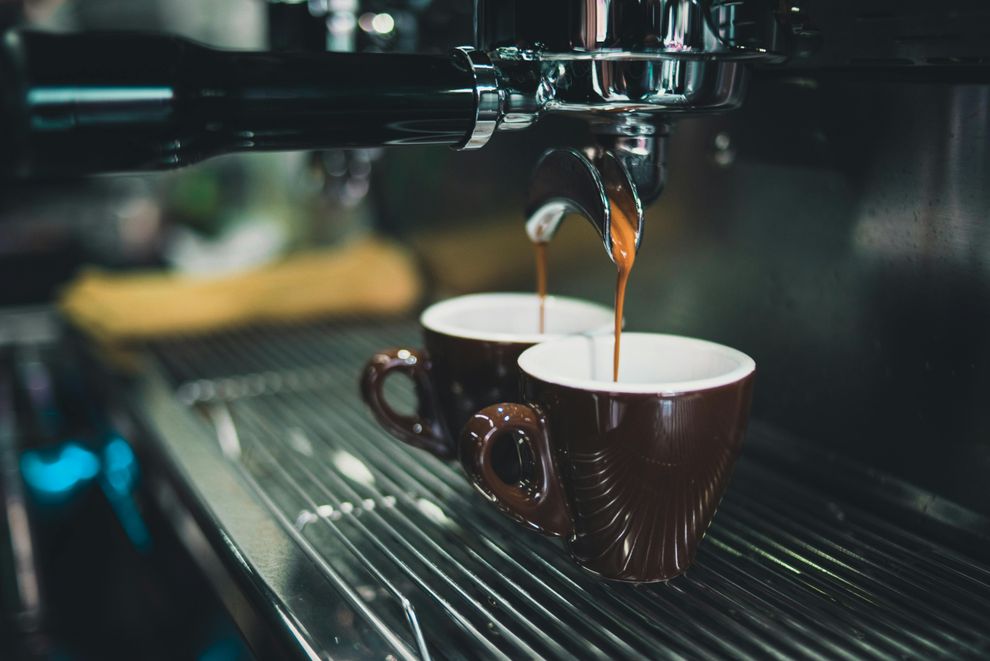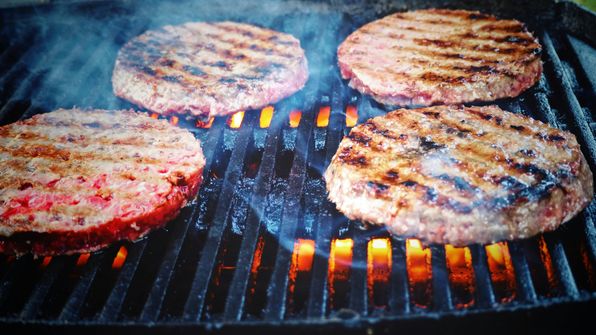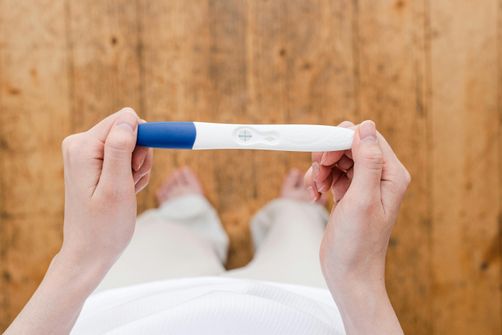
Foods That Boost Mood: A Practical Guide for Women to Support Emotional Health and Energy
The connection between what we eat and how we feel is powerful—certain foods provide the nutrients our brain needs to support mood, energy, and overal...

For many of us, starting the day without a cup of coffee or tea sounds impossible, but have you ever wondered how that daily caffeine boost affects your hydration levels? We know that staying hydrated is essential for energy, digestion, skin health, and overall well-being—yet caffeine is often said to dehydrate the body. So, what’s the truth?
Let’s dive into the effects of caffeine on hydration, what women need to know about balancing their coffee or tea consumption, and how to stay hydrated while enjoying your favorite drinks.

You’ve probably heard that caffeine is a diuretic, which means it can cause you to lose water through increased urination. While this is true to some extent, the effect is not as dramatic as once thought. Research shows that moderate caffeine consumption doesn’t have a significant dehydrating effect, especially if you’re drinking moderate amounts and not chugging cup after cup.
Studies suggest that consuming up to 400 mg of caffeine per day (about 3-4 cups of coffee) is not likely to cause dehydration. In fact, caffeinated beverages like coffee and tea still contribute to your daily fluid intake, meaning they can help keep you hydrated as long as you aren’t drinking excessive amounts.
Women metabolize caffeine differently from men due to factors like hormonal fluctuations (especially during pregnancy or menopause). While caffeine isn’t inherently more dehydrating for women, hormonal changes can influence how your body handles fluid balance. That’s why it’s important to listen to your body and adjust your caffeine intake when necessary.
If you love your morning cup of coffee or afternoon tea, don’t worry! You can still enjoy your favorite caffeinated beverages without sacrificing your hydration. Here are some tips to keep in mind:
One simple way to maintain hydration while enjoying your coffee or tea is to pair it with a glass of water. For every cup of caffeinated beverage, try to drink a glass of water afterward. This will help offset any potential diuretic effects and ensure you’re staying properly hydrated.
Foods high in water content, like fruits and vegetables, can help you stay hydrated throughout the day. Cucumbers, watermelon, and celery are great choices that boost hydration while providing essential vitamins and minerals.
While black coffee and unsweetened tea are great choices, sugary caffeinated drinks like sodas or energy drinks can lead to dehydration due to their high sugar content. Sugar increases fluid loss, so try to stick to unsweetened versions of your favorite beverages whenever possible.
An easy way to check if you’re properly hydrated is by paying attention to the color of your urine—it should be light yellow, not dark or cloudy. If you notice darker urine, increase your water intake throughout the day.

For women, daily water intake recommendations vary depending on activity level, age, and overall health. As a general guideline, aiming for 2.7 liters (or about 11 cups) of total water per day—including fluids from food and beverages—can help you maintain optimal hydration.
Some common signs of dehydration include:
If you notice any of these symptoms, increase your water intake and try to reduce the amount of caffeine you consume.
Staying hydrated doesn’t mean cutting out caffeine altogether. You can adopt small habits to keep yourself well-hydrated, such as:
Q: Does caffeine really dehydrate you?
A: While caffeine has mild diuretic properties (increasing urination), studies show that moderate caffeine intake (up to 400 mg per day or about 3-4 cups of coffee) doesn’t cause significant dehydration. Caffeinated beverages, including coffee and tea, still contribute to your daily fluid intake. It’s all about balance.
Q: How can I balance caffeine intake and stay hydrated?
A: To balance caffeine intake while staying hydrated, drink a glass of water for every caffeinated beverage you consume. Also, eat water-rich foods like cucumbers, watermelon, and berries to boost hydration. Pairing your caffeine with water helps offset any mild diuretic effects.
Q: Can women drink coffee and tea without worrying about dehydration?
A: Yes, women can enjoy coffee and tea in moderation without worrying about significant dehydration. Caffeinated beverages can still contribute to overall fluid intake, but it’s important to listen to your body and maintain good hydration habits, especially during hormonal fluctuations.
Q: How much caffeine is safe for women to consume daily?
A: The general recommendation is to limit caffeine intake to 400 mg per day—equivalent to about 3-4 cups of coffee. However, this may vary based on individual sensitivity, pregnancy, or health conditions. Always monitor how caffeine affects your hydration, sleep, and overall well-being.
Q: What are signs that I’m not drinking enough water?
A: Signs of dehydration include dry mouth, fatigue, headaches, dizziness, and dark urine. If you experience any of these symptoms, increase your water intake and reduce caffeine consumption until you feel better.
The information provided in this article is for general educational purposes only and is not a substitute for professional medical advice. Always consult with a healthcare provider or dietitian regarding your individual health needs, especially if you are pregnant, nursing, or managing specific health conditions. Moderation and balance are key when consuming caffeinated beverages, and proper hydration should always be prioritized. Individual responses to caffeine may vary, and it’s important to listen to your body.
Caffeine doesn’t have to be the enemy of hydration. While it’s true that caffeine has mild diuretic effects, moderate consumption of coffee and tea can still be part of a well-hydrated lifestyle. By balancing your caffeine intake with plenty of water and hydrating foods, you can enjoy the benefits of your favorite caffeinated beverages without the worry of dehydration.
Takeaway: Women can maintain hydration while enjoying coffee and tea, as long as they consume them in moderation and pay attention to their body’s fluid needs.
Embrace it: Love your coffee? Go ahead and enjoy that cup—just make sure you’re sipping on water, too, to keep your body balanced and hydrated.

The connection between what we eat and how we feel is powerful—certain foods provide the nutrients our brain needs to support mood, energy, and overal...

Social gatherings often mean a spread of carb-heavy foods and tempting desserts that can make sticking to the carnivore diet feel tricky. But with a b...

The carnivore diet is often seen as straightforward: eat meat, keep it simple. But adapting it seasonally can bring freshness, variety, and local flav...

The carnivore diet has become increasingly popular, but like any extreme dietary approach, it raises important questions—especially for women concerne...

The carnivore diet has gained attention globally, but women’s experiences and cultural approaches to animal-based eating vary widely depending on wher...